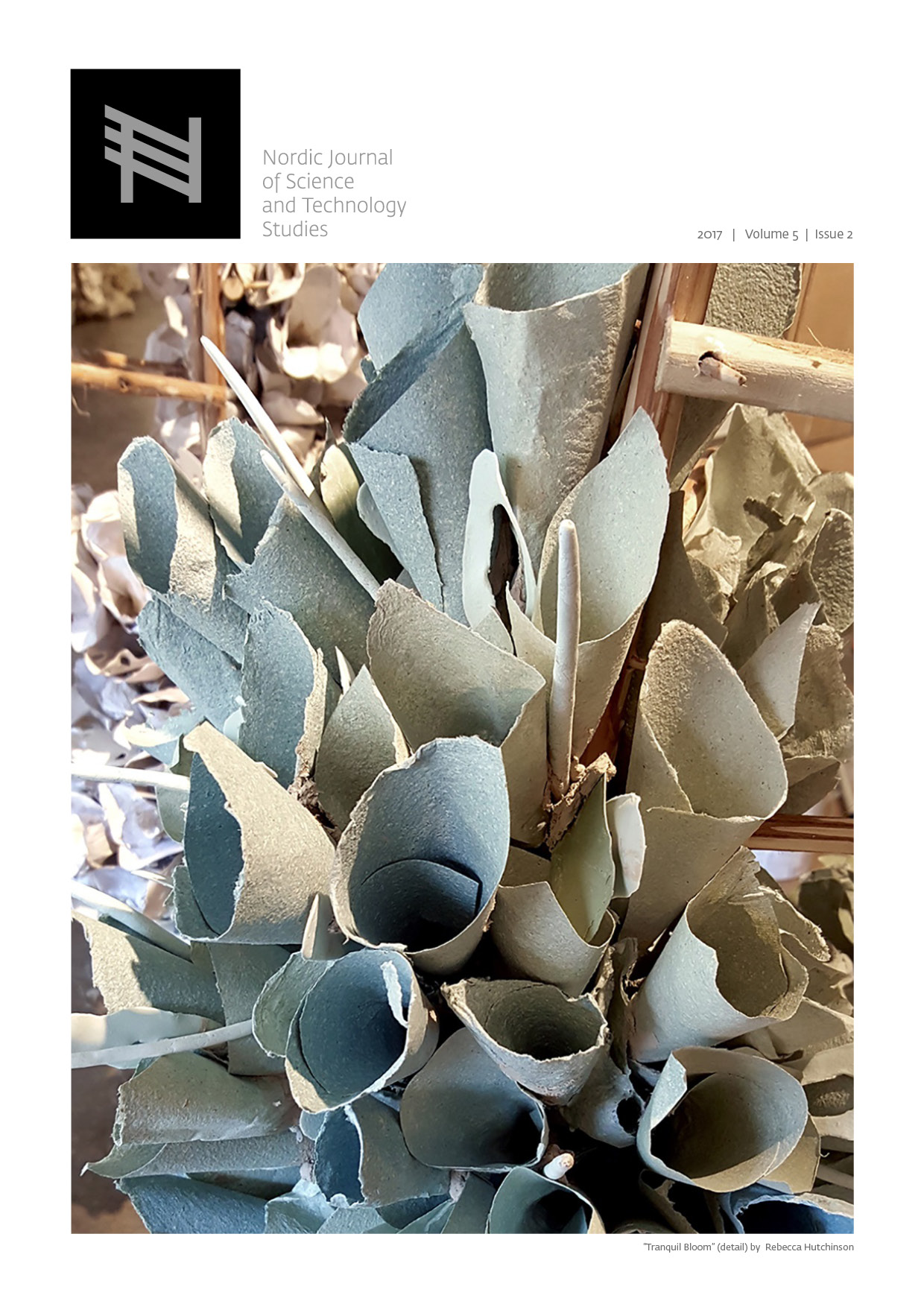Craft micro-enterprises contributions to sustainability: the example of yarn related businesses
DOI:
https://doi.org/10.5324/njsts.v5i2.2323Keywords:
craft, building, textiles, micro-enterprises, collaboration, networksAbstract
This paper uses two case studies of small UK-based yarn businesses to explore whether craft enterprises might make a distinctive contribution to sustainable development. The ways in which positive social, environmental and economic impacts are supported by these businesses are identified and their potential as niche sites contributing to a broader sustainability transition is considered. These businesses themselves believe there are strong links to the social dimensions of sustainability, particularly in terms of community building. There is also a distinctive contribution to economic aspects of sustainability with the outputs of craft enterprises releasing latent financial value and attaching value associated with provenance and rarity compared to a commodity market, rather than contributing to conventional economic growth. Contributions to environmental sustainability are largely indirect, through changing the economic viability of marginal agricultural production and therefore allowing conservation management in less economically favoured areas. This preliminary analysis suggest that the smallest craft enterprises do offer insights into how a wide transition might be achieved, but realising such a transition is made more difficult by the ambitions and motivations of the individuals in the craft businesses themselves.
Downloads
References
hand-knitting in the construction of women’s sense of self in
an island community, Shetland, c. 1850-2000. Textile History
37(2): 149-165.
Corkhill, B. 2014. Knit for Health & Wellness: How to knit a flexible
mind & more... Bath: Flatbear Publishing.
Coxe, W., Hartung, N F., Hochberg, H H., Lewis, B J., Maister, D H.,
Mattox, R F., & Piven P A. 1986. Charting your course: Master
Strategies for organizing and managing architecture firms.
Architectural Technology (May/June): 52-58.
Elkington, J. 1999. Cannibals with Forks: Triple Bottom Line of 21st
Century Business, London: Capstone.
Geels, F. W. 2002. Technological transitions as evolutionary config-
uration processes: A multi-level perspective and a case-study.
Research Policy 31: 1257-1274.
Geels, F. W. & Schot, J. 2007. Typology of sociotechnical transition
pathways. Research Policy 36: 399-417.
Jakob, D. 2012. Crafting your way out of the recession? New craft
entrepreneurs and the global economic downturn. Cambridge
Journal of Regions, Economy and Society 6: 127-140.
Kemp, R., Schot, J. & Hoogma, R. 1998. Regime shifts to sustain-
ability through processes of niche formation: The approach of
strategic niche management. Technology Analysis & Strategic Management. 10: 175-195.
Latour, B. 2005 Reassembling the Social: An Introduction to Actor-
Network-Theory. Oxford: Oxford University Press
Luckman, S. 2015a. Craft and the Creative Economy. London:
Palgrave Macmillan.
Luckman, S. 2015b. Women’s Micro-Entrepreneurial Homeworking.
Australian feminist studies 30: 146-160.
Norman, W. & Macdonald, C. 2004. Getting to the Bottom of “Triple
Bottom Line”. Business Ethics Quarterly 14: 243-262.
Porter, M. E. & Kramer, M. R. 2011. Creating Shared Value. Harvard
Business Review
Prahalad, C. K. 2009. Fortune at the Bottom of the Pyramid. New
Jersey: Prentice Hall.
Smith, A. & Raven, R. 2012. What is protective space? Reconsidering
niches in transitions to sustainability. Research Policy. 41: 1025-1036.
Stoll, E. E. & Ha-Brookshire, J. E. 2012. Motivations for Success.
Clothing and Textiles Research Journal. 30: 149-163.
Wenger E. 1998. Communities of Practice: Learning, Meaning, and
Identity. Cambridge: Cambridge University Press.
Downloads
Published
Issue
Section
License
All content in NJSTS is published under a Creative Commons Attribution 4.0 license. This means that anyone is free to share (copy and redistribute the material in any medium or format) or adapt (remix, transform, and build upon the material) the material as they like, provided they give appropriate credit, provide a link to the license, and indicate if changes were made.






